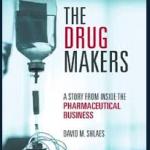Abbvie is buying Allergan – but not for its antibiotic franchise. They are more interested in Botox and other esthetic produ
Dr. David Shlaes
This is antibiotic awareness week. To mark this week, there has been a great deal of talk and the publication of several important papers and workshops on antibiotics and resistance.
When legislators and policymakers try to do just about anything to encourage innovation—especially in drug research—it rarely works. This is because, for the most part, they have absolutely no idea what it takes to discover a drug. None.
We at ACSH have been writing about the dire situation we face because
The federal government took another small step in the battle
There are two items in today s news that address the 800 pou





